June 9, 2025 | 01:46 GMT +7
June 9, 2025 | 01:46 GMT +7
Hotline: 0913.378.918
June 9, 2025 | 01:46 GMT +7
Hotline: 0913.378.918
On May 6, the Crop Production and Plant Protection Department (Ministry of Agriculture and Environment – MAE), in collaboration with the Food and Agriculture Organization of the United Nations (FAO), convened a workshop to launch project TCP/RAS/3907 – “Strengthening the capacities of Government counterparts and relevant stakeholders for increasing productivity and building climate resilient agriculture through nature-based solutions in Asia”.
The project is implemented from March to December 31, 2025, in Hanoi, Ho Chi Minh City, Bac Lieu, and Nam Dinh.
The main objective is to harness the potential of nature-based solutions to create new opportunities and effective responses to the challenges posed by climate change, particularly the outbreaks of crop pests and the adverse effects of chemical plant protection products. Through this initiative, the project seeks to promote sustainable agricultural development that is more adaptive and resilient to climate change in Vietnam.
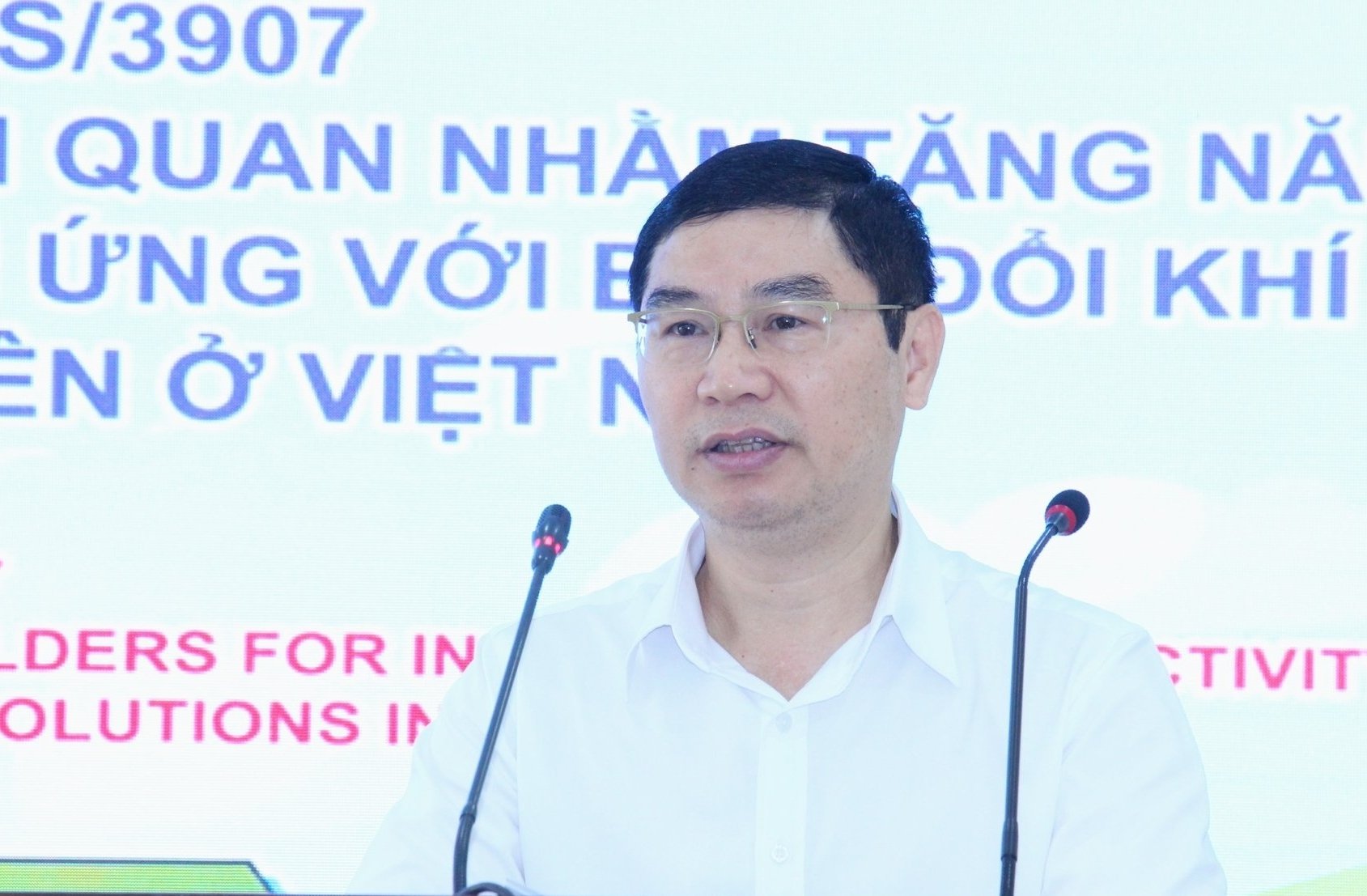
Mr. Nguyen Quy Duong, Deputy Director General of the the Crop Production and Plant Protection Department spoke at the workshop. Photo: Trung Quan.
According to Mr. Nguyen Quy Duong, the project will support the development and refinement of legal and regulatory documents aimed at promoting research, production, registration, and use of biological plant protection products (PPPs), biological control agents (BCAs), and biopesticide formulations. This effort seeks to reduce dependence on chemical pesticides and contribute to a safer, more sustainable agricultural production system.
In addition, the project will implement climate-smart farming models that integrate nature-based solutions in the target regions. These models are designed to enhance key agricultural commodities’ economic value and competitiveness, particularly rice, while encouraging the broad adoption of effective, safe, and sustainable pest management practices. The ultimate goal is to minimize the negative impacts of chemical PPPs on the environment and public health, and to advance a green, clean, and climate-resilient agricultural system.
At the same time, the project will strengthen communication and training efforts to raise awareness and disseminate knowledge about the role and benefits of nature-based solutions in crop protection and climate change adaptation. Target audiences include government agencies, relevant organizations, and farming communities. These efforts are expected to accelerate the transition toward sustainable pest management systems that protect the environment and community health.
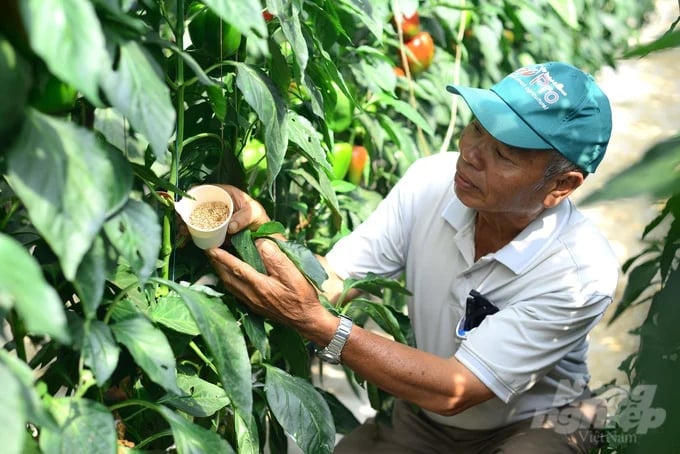
Biological solutions are being actively adopted by farmers toward a safe and sustainable agriculture. Photo: Minh Hau.
The project aims to achieve three primary outcomes: (I) Strengthen the capacity to register PPPs and enforce related regulations, focusing on nature-based crop protection solutions; (II) Enhance national capabilities in preventing and managing major invasive crop pests in the context of climate change by applying nature-based solutions; and (III) Raise awareness among producers and consumers about reducing the risks posed by chemical pesticides; encourage the selection and use of safe plant protection products; and improve resilience to climate change impacts.
According to Mr. Nguyen Quy Duong, Deputy Director General of the Crop Production and Plant Protection Department, the current situation demands increasingly higher standards for the quality and safety of Vietnam’s agricultural products. However, pest and disease management still relies heavily on chemical PPPs. Overusing toxic chemicals has led to environmental degradation and contamination of soil and water resources, posing serious threats to public health.
While the Vietnamese Government and the MAE have introduced multiple policies promoting the use of biological pesticides and environmentally friendly practices, the misuse of chemical pesticides remains widespread. This includes the use of unregistered or poorly sourced products and violations of pre-harvest intervals, which continue to cause environmental pollution and raise the risk of food poisoning.
Therefore, the project is key in supporting Vietnam’s transition toward more sustainable, safe, and climate-resilient agricultural practices.
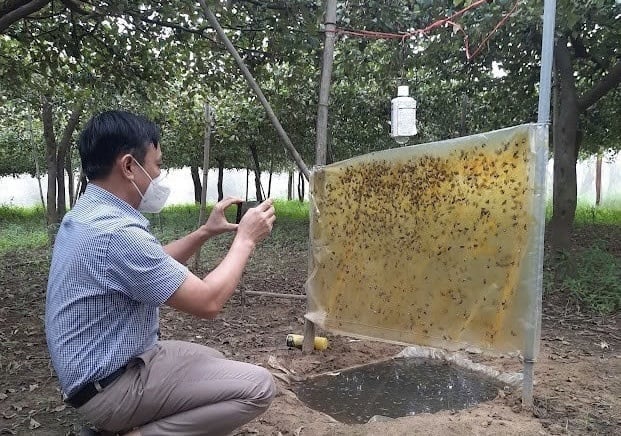
Model of using biological agents to control pests on fruit trees. Photo: Archive.
Despite its potential, the production and application of PPPs still fall short of meeting actual demand due to various barriers. These include limitations in research, manufacturing, registration, and practical use of biopesticides; inadequate infrastructure and technical capacity for developing biological control agents; and a lack of coherence in laboratory systems, diagnostic facilities, and large-scale production of biopreparations. In addition, many government officials and farmers have not been fully equipped with the necessary knowledge and skills to implement biological solutions effectively.
Awareness of the role and benefits of nature-based approaches in pest management and climate change adaptation also remains low, both at the community level and among policymakers.
This situation underscores the urgent need to raise awareness, promote sustainable agricultural practices, and develop supportive policies that facilitate adopting environmentally friendly solutions in agricultural production.
The project is expected to significantly address these challenges and strengthen the Government’s and relevant stakeholders’ capacity to apply nature-based solutions effectively.
Mr. Nguyen Song Ha, Assistant FAO Representative in Vietnam, noted that climate change severely impacts production systems and people. Transboundary pests are becoming more frequent and complex. However, the overuse of chemical plant protection products to combat these pests is creating serious environmental and human health consequences, particularly in rural areas, where farmers often have limited awareness and lack access to safe alternatives.
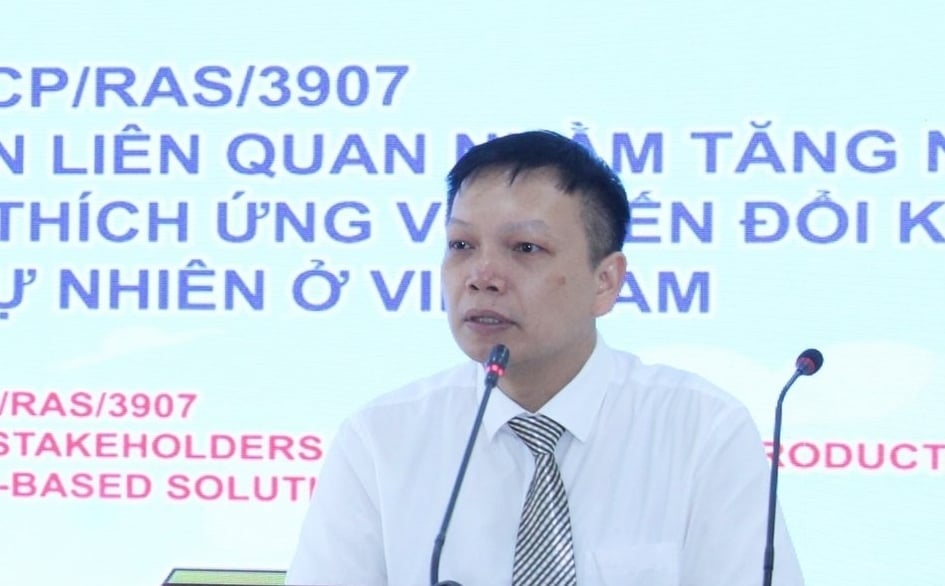
According to Mr. Nguyen Song Ha, FAO will actively support the implementation of nature-based solutions for pest management in Vietnam. Photo: Trung Quan.
Mr. Nguyen Song Ha affirmed that FAO is committed to actively supporting the development and implementation of nature-based solutions for pest management in Vietnam. Within the framework of the newly launched project, FAO will provide a team of highly qualified technical experts to guide and advise on the formulation and application of nature-based solutions in pest control and sustainable agricultural production.
This support will include organizing training courses and capacity-building workshops for government officials, technicians, and farmers. The focus will be on biological approaches such as Integrated Pest Management (IPM) and integrated Plant Health Management (IPHM) and the effective use of biological plant protection products (bio-PPPs), biological control agents (BCAs), and other eco-friendly formulations.
In addition, FAO will assist in reviewing, revising, and improving policies and regulations related to the registration and management of bio-PPPs. This will help lay the foundation for developing a legal framework and action strategies tailored to Vietnam’s specific context and practical needs, facilitating the wider adoption of environmentally sustainable plant protection practices.
"Through the project, farmers will improve both their awareness and technical capacity in applying nature-based solutions for crop protection," stated Mr. Nguyen Song Ha. “This includes the use of biological plant protection products, pheromone traps, protein baits, and other eco-friendly biopesticide formulations. These solutions not only help minimize the risks associated with chemical pesticides, but also contribute to the protection of ecological systems, the production of safe agricultural goods, and the advancement of a sustainable and responsible agricultural sector.”
Translated by Kieu Chi
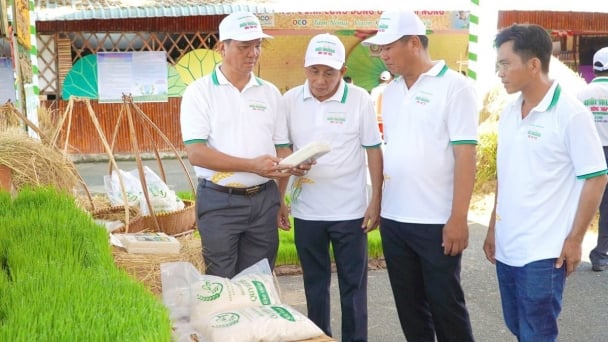
(VAN) Dong Thap has launched a meeting in response to the Action Month for the Environment under the theme 'Live Green - Join Hands for a Green Economy' at Tram Chim National Park.
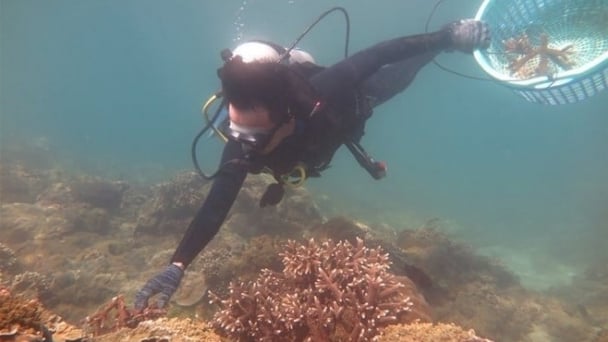
(VAN) The ocean has the capacity to absorb millions of tons of carbon, provided that mangrove forests, coral reefs, and biodiversity are protected.
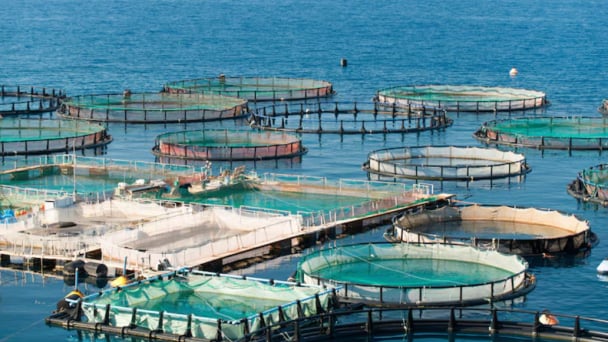
(VAN) Technology is redrawing the map of Vietnamese aquaculture: more modern, greener, and more sustainable.

(VAN) Novel process harnesses machine learning to reveal groups of genes that determine how efficiently plants use nitrogen.

(VAN) Several scientists and farmers are experimenting with soil treatment in some key durian-growing regions such as Cai Lay (Tien Giang), Dak Song, Gia Nghia, and Dak R’lap (Dak Nong).
/2025/05/25/4127-3-073637_820.jpg)
(VAN) Thanks to the promotion from an FAO-implemented project, vegetable production in greenhouses in Moc Chau has seen strong development, from 1.5 hectares in 2021 to nearly 50 hectares in 2024.

(VAN) FAO has recently supported USD 140,000 to implement the project 'Risk mitigation human-animal interface risks through disease control initiatives in pig farming.'